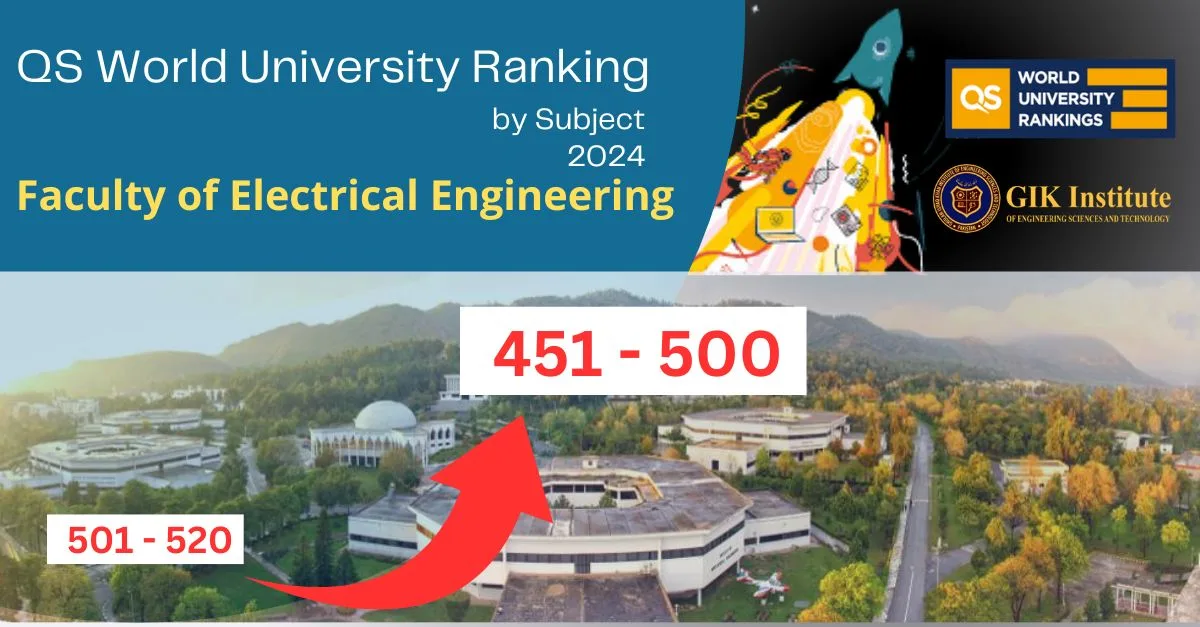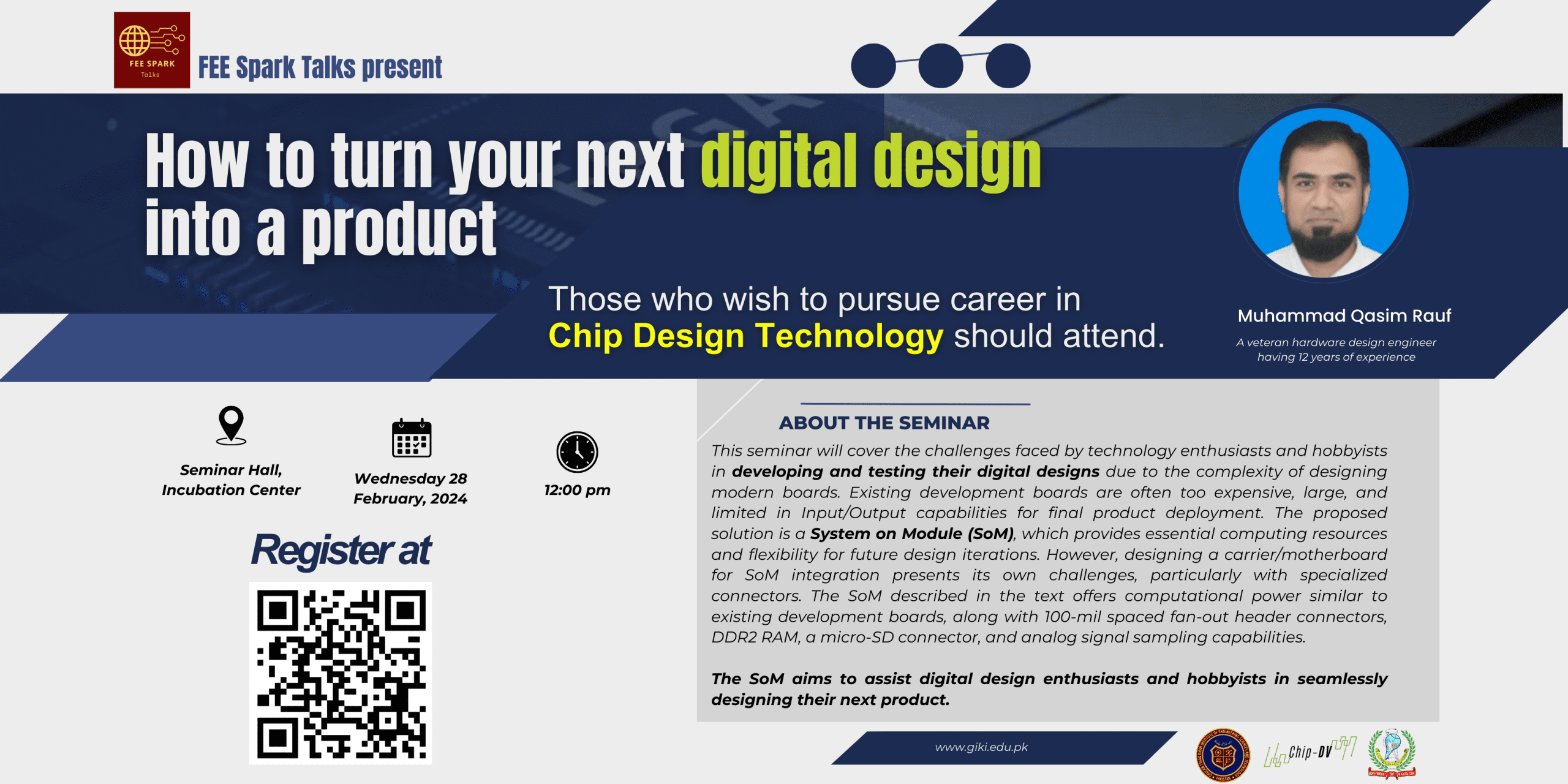Faculty Mission
The Faculty of Electrical Engineering is to produce graduates equipped with broad and in-depth knowledge and relevant skills to present effective socio-economical solutions for complex problems.
Program Educational Objectives (PEOs):
The three PEOs of FEE are stated as follows:
PEO | Attribute | Statement |
PEO 1 | Competent Engineers | Demonstrate competence pertinent to the field of Electrical Engineering in industry, research, and academia. |
PEO 2 | Skillful Managers | Ability to effectively lead, manage, and collaborate in professional pursuits in a diverse and interdisciplinary environment. |
PEO 3 | Responsible Individuals | Conscientious of societal needs with due consideration of ethical, environmental, and global aspects. |
Program Learning Outcomes (PLOs):
PLO 1: Engineering Knowledge
Ability to apply knowledge of mathematics, science, engineering fundamentals and an engineering specialization to the solution of complex engineering problems.
PLO 2: Problem Analysis
Ability to identify, formulate, research literature, and analyze complex engineering problems reaching substantiated conclusions using first principles of mathematics, natural sciences and engineering sciences.
PLO 3: Design/Development of Solutions
Ability to design solutions for complex engineering problems and design systems, components or processes that meet specified needs with appropriate consideration for public health and safety, cultural, societal, and environmental considerations.
PLO 4: Investigation
Ability to investigate complex engineering problems in a methodical way including literature survey, design and conduct of experiments, analysis and interpretation of experimental data, and synthesis of information to derive valid conclusions.
PLO 5: Modern Tool Usage
Ability to create, select and apply appropriate techniques, resources, and modern engineering and IT tools, including prediction and modeling, to complex engineering activities, with an understanding of the limitations.
PLO 6: The Engineer and Society
Ability to apply reasoning informed by contextual knowledge to assess societal, health, safety, legal and cultural issues and the consequent responsibilities relevant to professional engineering practice and solution to complex engineering problems.
PLO 7: Environment and Sustainability
Ability to understand the impact of professional engineering solutions in societal and environmental contexts and demonstrate knowledge of and need for sustainable development.
PLO 8: Ethics
Ability to apply ethical principles and commit to professional ethics and responsibilities and norms of engineering practice.
PLO 9: Individual and Team Work
Ability to work effectively, as an individual or in a team, on multifaceted and /or multidisciplinary settings.
PLO 10: Communication
Ability to communicate effectively, orally as well as in writing, on complex engineering activities with the engineering community and with society at large, such as being able to comprehend and write effective reports and design documentation, make effective presentations, and give and receive clear instructions.
PLO 11: Project Management
Ability to demonstrate management skills and apply engineering principles to one’s own work, as a member and/or leader in a team, to manage projects in a multidisciplinary environment.
PLO 12: Lifelong Learning
Ability to recognize importance of, and pursue lifelong learning in the broader context of innovation and technological developments.
Faculty of Electrical Engineering is committed to deliver comprehensive and state-of-the-art electrical engineering education to its students while in line with national requirements and best international practices for enhanced student’s learning.
































